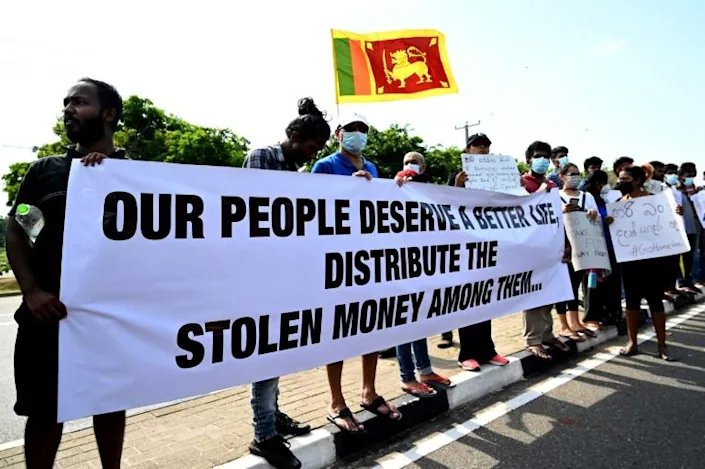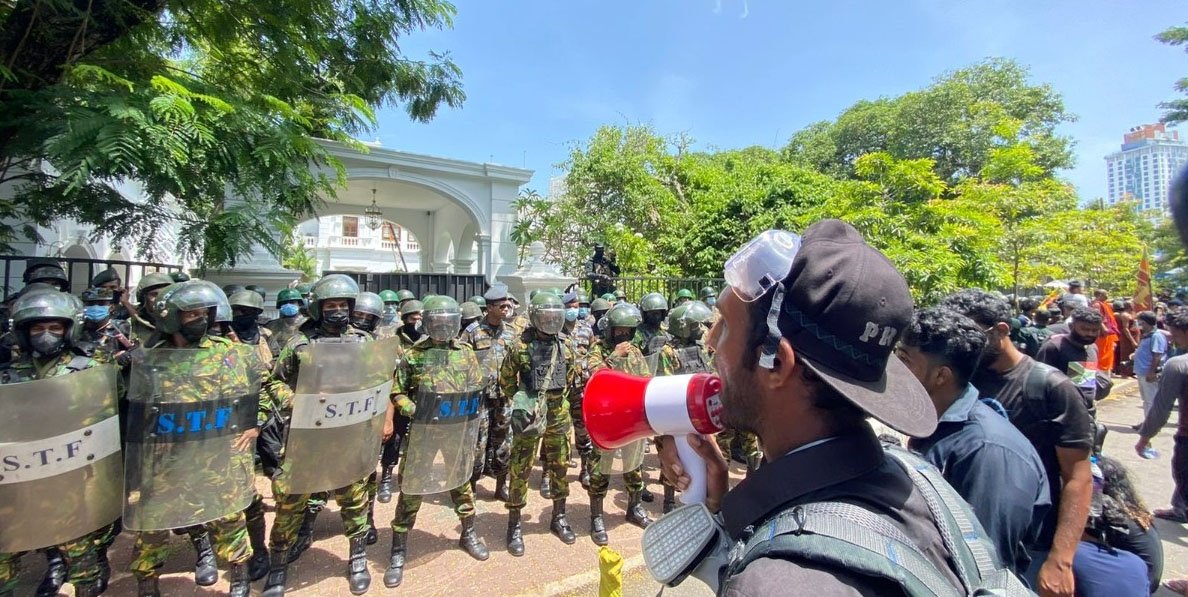Colombo, May 14 (PTI): Sri Lankan President Gotabaya Rajapaksa on Saturday appointed four members of the ruling party to Prime Minister Ranil Wickremesinghe’s Cabinet, including G L Peiris as the Foreign Minister, even as the premier called for bipartisanship to tackle the island’s crippling economic crisis.
Dinesh Gunawardena has been sworn in as the Minister of Public administration, Peiris as the Foreign Minister, Prasanna Ranatunga as the Minister of Urban Development and housing and Kanchana Wijesekara as the Minister of Power and Energy.
It was the first appointment of an all-party interim government announced by the embattled President.
All four appointees came from Rajapaksa’s Sri Lanka Podujana Peramuna (SLPP) party.
Peiris was also the Foreign minister in the former Mahinda Rajapaksa-led Cabinet.
The SLPP has decided to offer crucial support to Wickremesinghe, who has just one seat in Parliament, to help him prove a majority in the House.
Most of the Opposition parties in Sri Lanka announced that they would not be joining the interim government led by Wickremesinghe.
Wickremesinghe in a letter to the main Opposition Samagi Jana Balawegaya (SJB) leader Sajith Premadasa asked him to help in tackling the economic crisis by supporting the Wickremesinghe premiership.
Premadasa had made a last-ditch effort to be the Prime Minister ahead of Wickremesinghe.
Wickremesinghe asked Premadasa to forget political differences in the task of rebuilding the economy to stabilise the country.
Responding to the letter, Premadasa assured the Prime Minister that as a responsible Opposition they would be supporting the government in its efforts to tackle the economic crisis.
He has reiterated that his party would press for a government without the Rajapaksa brothers.
Premadasa’s SJB had resolved not to be part of the government claiming that Wickremesinghe lacked public approval to be the premier.
Meanwhile, the lawyers’ body, BASL in a statement has called on Wickremesinghe to demonstrate his ability to establish consensus among all political parties in parliament.
It has called for a timeline to implement constitutional reforms – the 21st Amendment and the abolition of the executive presidency.
The 21st Amendment is expected to annul the 20A which gave unfettered powers to President Rajapaksa after abolishing the 19th Amendment which made parliament powerful over the president.
Wickremesinghe, the 73-year-old United National Party (UNP) leader, was appointed as Sri Lanka’s 26th prime minister on Thursday as the country was without a government since Monday when President Gotabaya Rajapaksa’s elder brother and prime minister Mahinda Rajapaksa resigned after violence erupted following an attack on the anti-government protesters by his supporters.
Sri Lanka is facing the worst economic crisis in its post-independence history.
Sri Lanka’s economic crisis has provoked widespread protests calling for political reform and the resignation of President Gotabaya Rajapaksa.
The authorities have made numerous arrests and repeatedly imposed curfews.
The political crisis was triggered in late March when people hurt by long hours of power cuts and essential shortages took to the streets demanding the resignation of the government.
President Rajapaksa sacked his Cabinet and appointed a younger Cabinet as a response to the demand for resignation. A continuous protest opposite his secretariat has now gone on for well over a month.
On Monday, his brother Mahinda Rajapaksa resigned as the prime minister to make way for the president to appoint an interim all political party government. Wickremesinghe was appointed the country’s new Prime Minister on Thursday.







